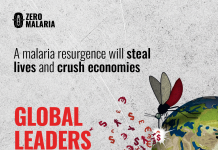By Thuku Kariuki
The African Development Bank has approved a $500,000 grant from its Urban and Municipal Development Fund (UMDF) to fund a feasibility study for the Kigali Urban Cable Car Project, a $100 million initiative led by Ropeways Transit Rwanda Ltd.
This 5.5 km network will mark sub-Saharan Africa’s first aerial urban transit system, promising to ease crippling traffic congestion, curb greenhouse gas emissions, and connect underserved communities to vital opportunities.
The project’s first phase will establish two key corridors: one linking Nyabugogo Taxi Park to the Central Business District (CBD) Hub, and another connecting the Kigali Convention Center to Kigali Sports City, home to landmarks like Amahoro Stadium, BK Arena, and the newly developed Zaria Court.
Designed to integrate seamlessly with Kigali’s existing transport infrastructure, the cable car system will ferry over 50,000 passengers daily on a swift 15-minute end-to-end journey. Construction is slated to begin in late 2026, with the system expected to be operational by 2028.
The Kigali Urban Cable Car Project aligns with Rwanda’s ambitious climate goals, including a 38% reduction in carbon emissions by 2030 and carbon neutrality by 2050. Anchored in Rwanda’s Green Taxonomy, E-mobility Strategy, and Climate and Nature Finance Strategy, the initiative is a cornerstone of the country’s push for sustainable urban development.
The system will prioritize accessibility for people with disabilities and create employment opportunities for women, girls, and low-income residents, while fostering job creation and technology transfer.
Dr. Akinwumi Adesina, president of the African Development Bank Group, hailed the project as a model for the continent. “This transformative project aligns perfectly with the Bank’s vision for sustainable, green, climate-resilient urban mobility infrastructure,” he said. “By financing Rwanda’s urban cable car system, we are investing in a scalable model of low-carbon, inclusive public transport that cities across Africa can emulate.”
The feasibility study, funded by the UMDF grant, will draw inspiration from successful cable car systems in La Paz, Bolivia, and Singapore, adapting their best practices to Kigali’s unique urban landscape. The study aims to position the project as an attractive opportunity for international investors, leveraging platforms like the Africa Investment Forum (AIF).
The UMDF has previously supported similar efforts in Rwanda, such as the Kigali Urban Transport Improvement Project, which successfully drew critical investment.
The $100 million project will be financed through a blend of grants, concessional loans, and commercial funding from partners including the International Finance Corporation (IFC), Africa50, the Trade and Development Bank (TDB), the Africa Finance Corporation (AFC), and the Alliance for Green Infrastructure in Africa (AGIA). The Rwandan government, alongside the African Development Bank and other development partners, will drive this innovative financing structure.
The UMDF grant will specifically assess the project’s viability gap, ensuring its financial sustainability. Imena Munyampenda, Director General of the Rwanda Transport Development Agency, emphasized the project’s Public-Private Partnership (PPP) model, which will harness private sector expertise and resources.
“This pioneering feasibility study is a game-changing milestone,” said Solomon Quaynor, the African Development Bank’s Vice President for Private Sector, Infrastructure, and Industrialization. “Through the UMDF, we are laying the foundation for an investment-ready green infrastructure asset that offers both impact and returns.”
Kigali Urban Cable Car Project is more than a local solution—it’s a blueprint for sustainable urban mobility across Africa. By combining cutting-edge infrastructure with environmental and social priorities, the project aligns with the African Development Bank’s Ten-Year Strategy and the Alliance for Green Infrastructure in Africa (AGIA), a global partnership driven by the Bank, Africa50, and the African Union.
As Kigali prepares to take flight, this initiative could inspire cities continent-wide to reimagine urban transit for a greener, more inclusive future.






